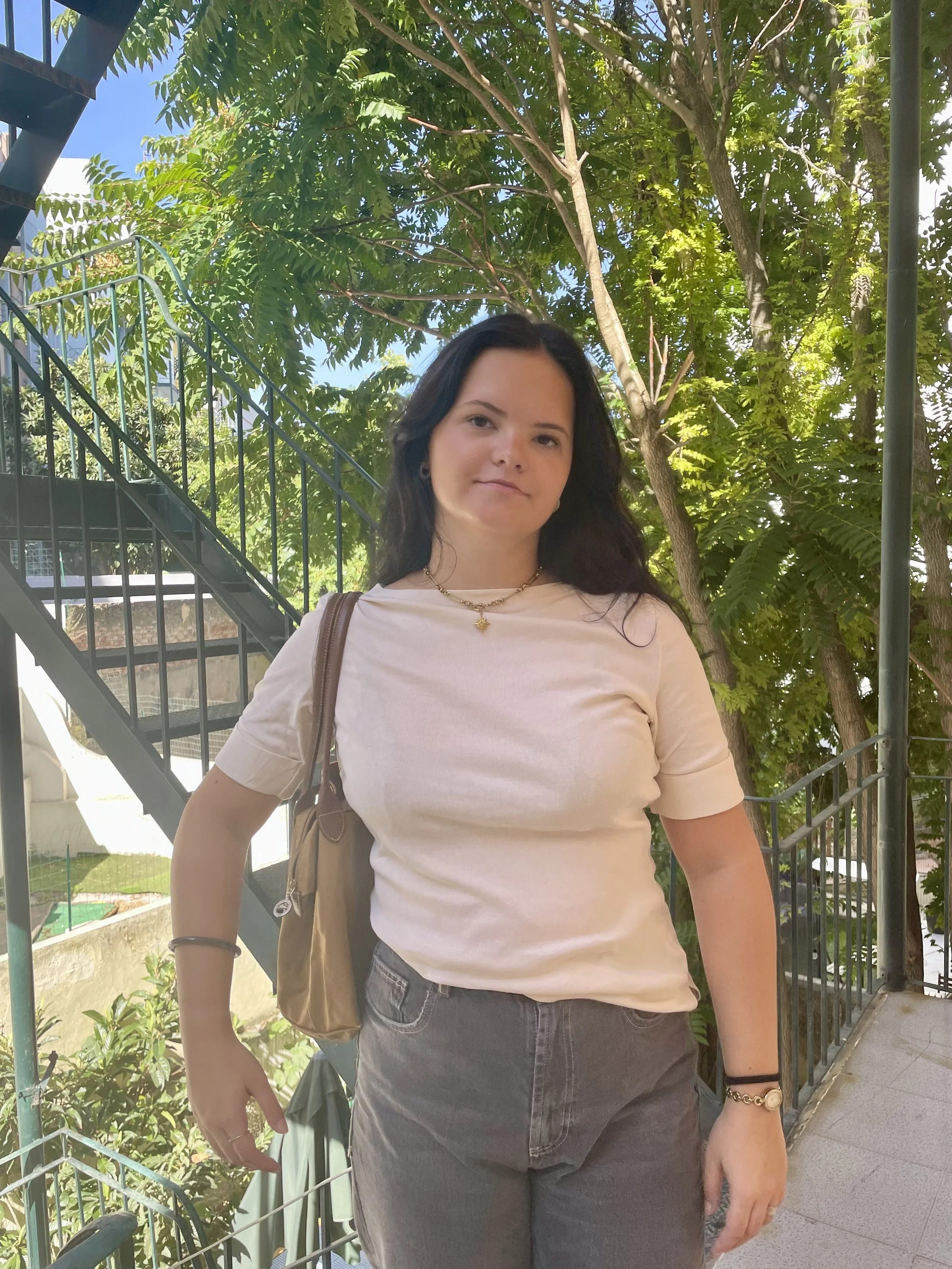Testimonial with Pipa
“Even though we didn’t choose to have this disorder, it’s still our responsibility to work on getting better, even if it feels unfair or hard.”
How was the process leading up to your diagnosis, and what happened afterward? How did you feel, and how did you deal with it?
I’ve always had some psychological issues. It all started with being ashamed to eat in front of people—especially my boyfriend—when I was about 12 or 13. Then I began having anger outbursts, during which I would destroy things or hurt myself. Eventually, I started seeing a psychologist who also specialized in eating disorders.
Although she helped me, I didn’t feel much improvement, because I mostly talked about my family problems during sessions instead of my issues with food or anger.
From a very young age, I had trouble regulating my emotions—whether in anger outbursts or when dealing with frustration (I would start crying, even in class, in front of my classmates, since I was little).
Things came to a head during the 2020 lockdowns, and I ended up seeing a psychiatrist. From there, it felt like my mental health just kept getting worse and worse.
I kept changing psychiatrists because it seemed like no medication worked for me, and eventually, I was referred to the Day Hospital at HSM, which specializes in borderline personality disorder. It was in that setting that my psychiatrist at the time gave me the diagnosis.
I was very surprised that what I was feeling wasn’t just a passing depression, as my parents kept telling me every day. However, when I looked at the nine main symptoms, I identified with almost all of them.
On one hand, it was positive to know that what I felt was common enough to have a name. But on the other hand, I felt very down because I knew borderline is chronic.
Which symptoms affect you the most personally? How did you learn—and are still learning—to cope with them?
The symptom that affects me the most is emotional instability; I’d say that’s really the biggest one for me. I struggle a lot with suicidal thoughts, depending on the stage of my illness. In the beginning, I didn’t know how to handle those thoughts and often made the mistake of thinking, “If I feel it, then I should act on it.” The truth is, the solution lies in not acting on what we feel—just because we feel something doesn’t mean it’s true.
I also have a lot of trouble maintaining relationships, whether romantic or friendships. Of course, for a young adult, not having found someone romantically yet isn’t the end of the world or even unusual, but in my case, I struggle to keep people around, even for short periods.
A symptom that isn’t often talked about but that I really suffer from is monkey branching. Basically, it’s a behavior where someone jumps from one romantic interest to the next without taking time to grieve the previous relationship, and does this repeatedly.
I feel like I’ve been doing this since I was 12. For some reason, I feel like I can’t be alone—it’s as if the world would implode if I were. However, I’m happy to say that I’m finally facing this fear, and it’s been a few weeks since I’ve been interested in anyone.
What helped me the most to get better—and when I say “better,” I mean stopping myself from trying to die or hurt myself—was finding strategies to deal with crises in the moment. For example, I really like making Problem/Solution tables to figure out what I can do to improve my life and solve my issues. Of course, sometimes there’s no obvious solution to a problem, because not everything depends on me, and I can’t control how others act.
As for emotional instability, I haven’t found a way to become more stable yet, and I don’t know if I ever will. I think the key is to ride the waves—to learn to live with those mood swings.
I also want to add that the DBT course on the website dialecticalbehaviortherapy.com helped me tremendously, and I can’t stop recommending it to everyone, even those who don’t have BPD. It teaches healthy and doable ways to handle crises and mood changes.
Something I realised recently, which helped me start improving, is that no one can make me better—not psychologists, psychiatrists, or even intensive therapies—if I don’t want to get better.
Even though we didn’t choose to have this disorder, it’s still our responsibility to work on getting better, even if it feels unfair or hard.
What are your biggest fears regarding this disorder?
My biggest fear is that I’ll end up taking my own life during a very low phase of the illness. Of course, not to focus only on tragedy, I’m also very afraid of not being able to find a job, become financially independent, and move out of my mother’s house.
What I want most is independence, and I know it’s going to be hard, but I believe I’ll make it because I’ve improved a lot. I think if I keep working hard on my recovery, it’s only a matter of time before I go into remission (hopefully!).
What positive traits do you find in this disorder?
The traits I have because of borderline that I see as positive are emotional maturity — which is quite rare for someone my age. I also have to mention that feeling my emotions more intensely than the average person has its good sides: when I’m feeling good, I feel euphoric, and those moments feel really good.
What advice would you give someone who’s going through a hard time right now?
My biggest advice is to take responsibility for your emotional state. Even if it’s not your fault, if you don’t make an effort to get better, you’ll never be able to.
